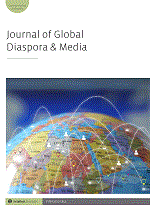-
f Between authoritarianism and democracy: Examining news media usage for political re-socialization and information acquisition in diasporic contexts
- Source: Journal of Global Diaspora & Media, Volume 1, Issue 1, Jun 2020, p. 15 - 33
-
- 15 Nov 2019
- 03 Feb 2020
- 01 Jun 2020
Abstract
While political scholars study news media as agents of political learning, the processes of political re-socialization of a conflict-generated diaspora moving from authoritarian to democratic regimes pose significant theoretical challenges that remain insufficiently researched. To this end, this study investigates the importance of traditional and digital media sources from the homeland and host country in fostering refugees’ understanding of the democratic norms and values, and political opportunities offered by the receiving country. Furthermore, it investigates the role of online diaspora communities as agents for political re-socialization and tools for information acquisition about Arabic, Swiss and international politics. Sixty semi-structured interviews with Arabs from refugee origins in Switzerland were analysed. Findings show the influence of the early-life political socialization, received prior to forced migration, on the purposive consumption of media from various sources. As Facebook started to lose its value as a source of political information, participants shift to producing and consuming news distributed by strong ties on private WhatsApp groups as a counter-strategy to acquire trustworthy information. Further insights on the impact of perceived media credibility and individual trust in news on the consumption behaviour and political learning are discussed.



